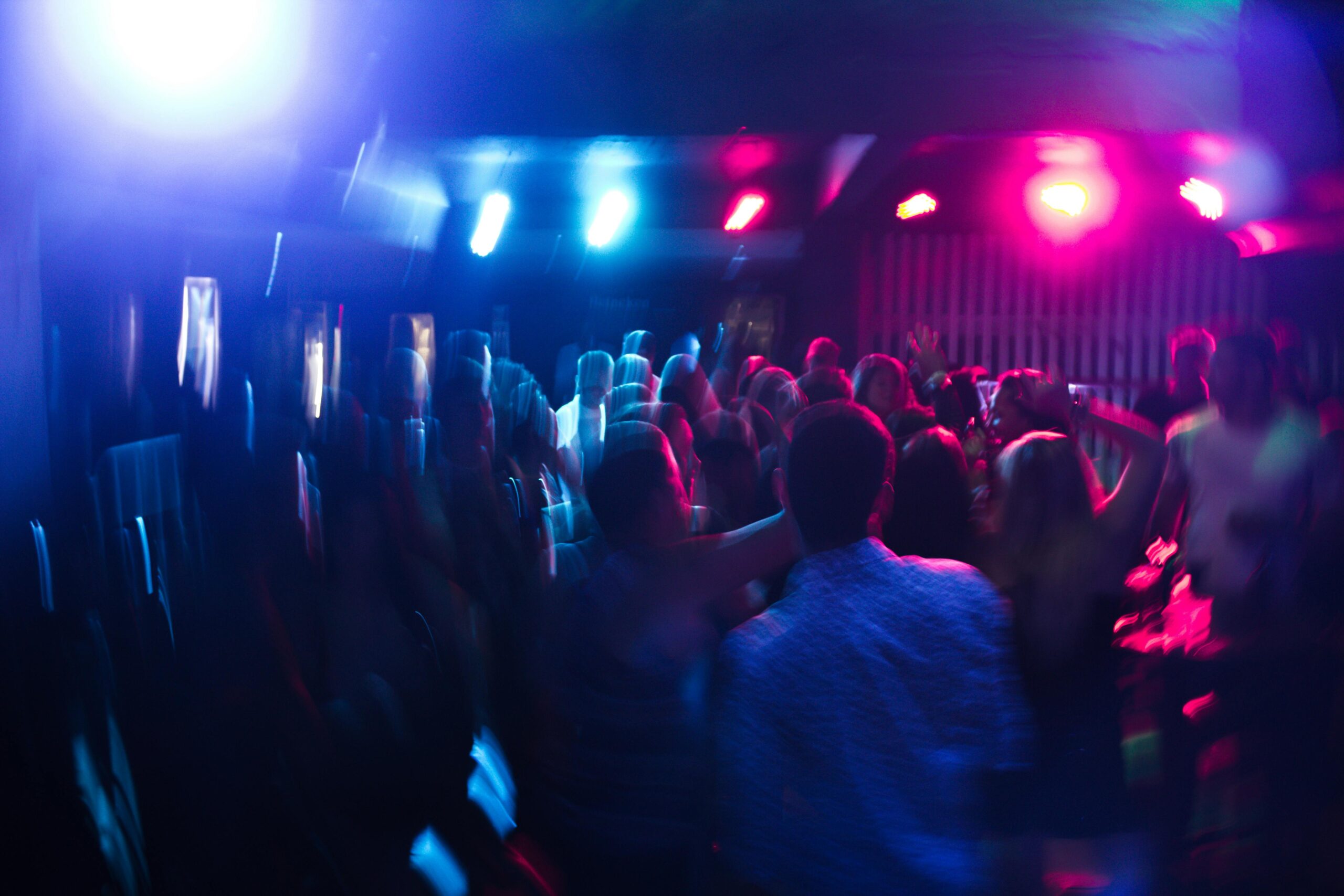Listeners:
Top listeners:
-
 play_arrow
play_arrow
Revolution 93.5 – MIAMI WZFL - SOUTH FLORIDA
REVOLUTION 935 - THE DANCE STATION
Scientists Say the Ideal Age to Stop Clubbing Is 69 – And They’re Not Joking
todayOctober 23, 2025

Berlin study reveals nightlife has long-term mental health benefits, challenging outdated beliefs about when to retire from the dance floor
Published: October 23, 2025
For years, society has perpetuated the narrative that clubbing is a young person’s game. Hit 30, and you should trade the dance floor for Netflix and couch cushions. By 37, you’re “too old” to be caught under strobe lights. But a groundbreaking new study from Berlin is flipping that script entirely, with findings that might just keep you on the dance floor for decades to come.
According to researchers, the ideal age to stop clubbing isn’t in your mid-thirties or even your forties. It’s 69 years old. And no, that’s not a punchline—it’s data-driven science.
The Berlin Study: Nightlife as Medicine
A recent social behavior study conducted in Berlin examined the long-term effects of nightlife participation on mental health, particularly for individuals who remain active in club and music communities as they age. The results challenge decades of assumptions about age-appropriate behavior and the supposed incompatibility of aging and nightlife culture.
Researchers found that clubbing activates the same regions of the brain associated with happiness, creativity, and social connection. Those who continued going out regularly past their 30s reported significantly higher markers of well-being compared to those who “grew out of it.”
• 25% higher life satisfaction among regular club-goers over 30
• 40% lower stress levels compared to those who stopped going out
• Brain activity linked to happiness and creativity increases during nightlife participation
• Ideal age to stop clubbing: 69 years old
The study’s conclusion? When scientists determined that 69 is the optimal age to hang up your dancing shoes, they weren’t making a joke. They were following the evidence. The findings suggest that some people don’t just age—they evolve with the music.
Why Nightlife Matters for Mental Health
The Science of Social Connection
Nightlife environments provide unique social benefits that extend far beyond simple entertainment. Clubs and music venues create spaces for collective experience, shared rhythm, and communal joy—elements that research has long linked to improved mental health outcomes.
Dance, in particular, has been studied extensively for its cognitive benefits in older adults. A 2018 systematic review published in the Journal of Applied Gerontology found that dance interventions in elderly populations helped improve or maintain cognition. Another prospective study tracking 469 older adults aged 75 to 85 found that practicing dance as a leisure activity several days per week was associated with a reduced risk of developing dementia.
The Berlin study builds on this foundation by examining not just dance itself, but the entire nightlife ecosystem—the music, the social interaction, the sensory stimulation, and the cultural participation that comes with being part of a vibrant club scene.
Research on Social Engagement in Older Adults
The Berlin findings align with broader research on the benefits of social participation for aging populations. A 2015 study published in the journal Psychosomatic Medicine found that club membership at age 18 was associated with significantly lower mortality risk by age 78—a 46% reduction. Social participation in youth and throughout life appears to have protective effects that extend decades.
While that study focused on club membership (organizations and groups) rather than clubbing (nightlife), the principle remains similar: sustained social engagement correlates with better health outcomes. The Berlin study suggests that nightlife venues, when approached as spaces for community and connection, can serve similar protective functions.
Adapting Nightlife Participation to Life Stages
The Berlin study doesn’t suggest that everyone should maintain the same level of nightlife participation throughout their entire adult life. Life circumstances change, and what works at 25 may not work at 45 or 65. The key finding is that continued participation at whatever level works for the individual appears to have mental health benefits.
Many older clubbers report adjusting their habits to accommodate changing needs. This might mean going out once a month instead of weekly, choosing venues with better sound systems and ventilation, arriving earlier and leaving before closing time, or seeking out events specifically designed for older crowds.
The rise of daytime club events, which typically run from noon to early evening, has made nightlife more accessible to people who can’t or don’t want to be out until 3 AM. These events offer the same music and dance floor experience without the sleep disruption that younger bodies tolerate more easily than older ones.
Health and Safety Considerations
While the mental health benefits of clubbing are significant, it’s important to acknowledge that nightlife environments can pose health risks if not navigated thoughtfully. Loud music can damage hearing over time, making earplugs a wise investment for regular club-goers of any age. Staying hydrated, avoiding excessive alcohol consumption, and being mindful of physical limitations can help ensure that clubbing remains a positive experience.
For older adults with certain health conditions, checking with healthcare providers before engaging in intensive physical activity like dancing is advisable. However, for most healthy adults, dancing and nightlife participation pose no inherent dangers and offer substantial benefits.
The most revolutionary aspect of the Berlin study isn’t the specific age of 69—it’s the broader message that there’s no reason to stop doing something you love simply because of arbitrary social expectations about age-appropriate behavior.
The study directly contradicts the shame many people feel about continuing to engage with nightlife as they age. Comments on social media posts about the research reveal how much relief people feel upon learning that their continued love of clubbing is not only acceptable but potentially beneficial to their health.
As one person put it: “They can erase the colors off the streets, but they can never take the colors out of the people.” While this quote originally referred to a different context, it applies perfectly to the relationship between aging and nightlife. External judgments can’t diminish the internal joy and connection that music and dance provide.
The Berlin study’s finding that the ideal age to stop clubbing is 69 represents more than just a data point—it’s a permission slip for anyone who has felt pressured to “grow out of” something that brings them joy and connection.
The evidence is clear: sustained participation in nightlife communities correlates with better mental health outcomes, including higher life satisfaction and lower stress. These benefits don’t disappear at 30, 40, 50, or even 60. They persist as long as the individual continues to engage.
This doesn’t mean everyone should or must maintain the same relationship with clubbing throughout their entire life. People’s interests and circumstances change, and that’s natural. But for those who continue to find meaning, joy, and connection on the dance floor, there’s no scientific reason to stop.
In the end, the question isn’t “when should you stop clubbing?” It’s “why would you stop doing something that makes you happy, connects you to community, and improves your mental health?” The answer, according to science, is that you shouldn’t—at least not until you’re 69.
So whether you’re 25 or 55, if the music moves you, keep moving. Because some people just age—but others evolve with the music.
Written by: Matt
2026 dance dance news deejays EDM music edm releases festivals
STAY UPDATED!
Don't miss a beat
Sign up for the latest electronic news and special deals
info@revolution935.com
By signing up, you understand and agree that your data will be collected and used subject to our Cookies Policy, and Terms of Use.
© 2025 REVOLUTION 93.5 RADIO MIAMI
